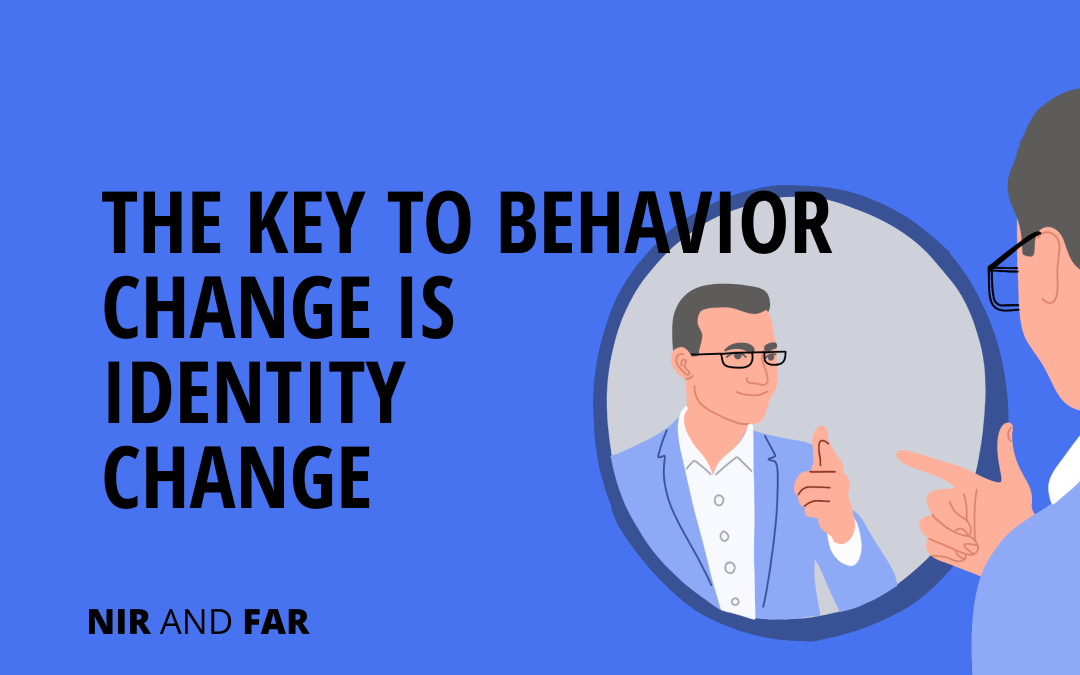One of the most effective ways to change your behavior is to change your identity. I don’t mean joining the CIA or a witness protection program, or adopting an alter ego. I mean, rather, changing the way you see yourself.
Our perception of who we are—our identity or self-image—has a dramatic effect on our future actions.
Self-image is a cognitive shortcut that helps our brains make otherwise difficult choices in advance, thereby streamlining the decision-making process.
“I don’t” versus “I can’t”
A study published in the Journal of Consumer Research tested the words people use when faced with temptation.
During the experiment, one group was instructed to use the words “I can’t” when considering unhealthy food choices, while the other group used “I don’t.” At the end of the study, participants were offered either a chocolate bar or granola bar to thank them for their time.
Nearly twice as many people in the “I don’t” group picked the healthier option on their way out the door.
The results demonstrate the influence that self-description and self-image have on our behavior—we think; therefore, we will be.
The way we think of ourselves can have a profound impact on how we deal with distractions and unintended behaviors.
To leverage the power of identity to fight distraction, we can enter into what I call an “identity pact,” which is a precommitment to a self-image that helps us pursue what we really want.
By aligning our behaviors with our identity, we make choices based on who we want to be.
How to Align Your Identity With a Behavior
Start by identifying the behavior you want to stop. For example, say you’d like to stop eating meat. For people who view themselves as meat-eaters trying to quit, the task of cutting out meat cold turkey can seem large and daunting because they feel as though they are constrained: “I can’t stop eating meat!”
Vegetarians, by contrast, have an easier time abstaining from meat. They don’t feel as though they are constrained; abstaining from meat is instead simply an expression of who they are.
To succeed at eliminating meat from your diet, then, the key to success is telling yourself and others that you are a vegetarian.
In the same way, telling yourself that you are indistractable can empower you to overcome distraction.
You’ll empower yourself yet further by saying this not just to yourself but to others as well.
For example, when they ask why you do “strange” things like meticulously plan your time, refuse to respond to every notification immediately, and so on, you can explain that you are indistractable and that these acts are typical for an indistractable person in the same way that, say, prayer and fasting are to a religious one.
Talking to others about your identity pact keeps you accountable to your mission; it encourages others to join in, and helps you stick to your plans. The more you stick to your plans, the more you reinforce your identity, and the easier changing your behavior becomes.
Making identity pacts can empower us to become people we want to be. Whether the behavior is related to what we eat, how we treat others, or how we manage distraction, this technique can help mold our behavior to fit our values.
Many people assume their identities are fixed. In fact, your self-image is flexible. Thinking of yourself in a particular way is a habit, and habits can be changed for the better.
Related Articles
- Schedule Maker: a Google Sheet to Plan Your Week
- Habit Tracker Template in Google Sheets
- The Ultimate Core Values List: Your Guide to Personal Growth
- Timeboxing: Why It Works and How to Get Started in 2024
- An Illustrated Guide to the 4 Types of Liars
- Hyperbolic Discounting: Why You Make Terrible Life Choices
- Happiness Hack: This One Ritual Made Me Much Happier

